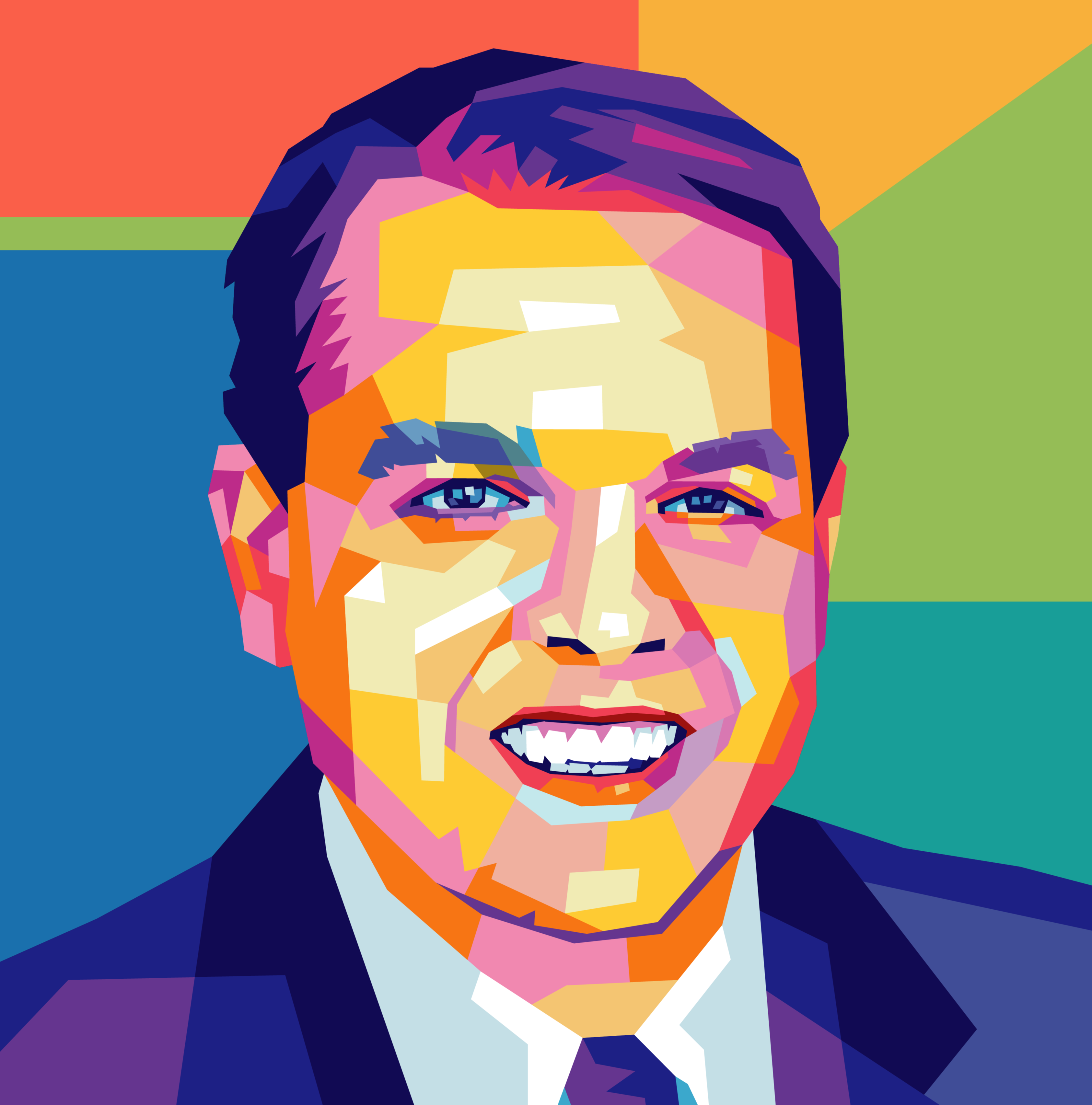Action! magazine caught up with Chip Roame, founder and managing partner of Tiburon Strategic Advisors and the Tiburon CEO Summits.
This year Roame is focused on evolution – evolution in markets, offerings, channels, tactics, and industry structure. He aims to challenge often repeated “truths” with data showing which products and channels are growing.
An interview with Chip Roame
 Roame: One of the key points the industry should pay heed to is that Fidelity Investments, Charles Schwab, Morgan Stanley and Vanguard continue to dominate in net flows, each capturing hundreds of billions of net flows in 2021 and 2022. All industry players need to better focus on those firms and their strategies, as their strategies are working.
Roame: One of the key points the industry should pay heed to is that Fidelity Investments, Charles Schwab, Morgan Stanley and Vanguard continue to dominate in net flows, each capturing hundreds of billions of net flows in 2021 and 2022. All industry players need to better focus on those firms and their strategies, as their strategies are working.
Anyone interested in understanding how the industry is changing should also follow the rapid growth in hybrid digital advice offerings – the firms leveraging both technology and financial advisors. Those firms are growing the fastest organically. I also believe M&A activity in the fee-based financial advisor (RIA) market will vastly increase over time.
Evolving markets
Roame: When people discuss generational wealth transfer, they miss that it is primarily going to Generation X investors and to a lesser degree, millennials. These are facts the industry doesn’t always get correct. We measured about $72.7 trillion going to Gen X and millennials over the next couple of decades. It should be obvious that you need to court the recipients of that wealth transfer before they get that wealth transfer.
There’s been a lot of bad journalism about the person who moves the money from their parent’s advisor. Of course, they will do that – it wasn’t their advisor to begin with. Advisors today who are capturing the younger generations, who may not have all that much money but will be the recipients of the wealth transfer, will be the winning advisors. Frankly, those are the Acorns, Stash, Robinhood and Schwabs of the world. Not the advisor hanging on to the Baby Boomer client and then wondering why the money moves away when the Baby Boomer client dies. Look at firms like Facet Wealth which serves clients at a monthly or quarterly subscription fee and does planning. That puts them in a really good position when that client gets a rollover from an inheritance someday.
The biggest market is what we call the single-digit millionaires, who have $1 to $3.5 million of investable assets. Their needs aren’t that different from those with a couple of hundred thousand to invest. They don't have complex estate planning or family office needs. That's about six million households or roughly $11 trillion in assets. It is a very simple market to serve; you don't need complicated alternative products or anything else.
People talk as if there's some big thick line between these investor classes, and there isn't. There are a lot of people in this single-digit-millionaire category who have straightforward needs and can be served very efficiently. Again, the winning advisors are serving those investors. I think it's been a mental block for many people in the industry who like to think that when you're high-net-worth, all of a sudden, you have all these fundamentally different needs, and I just don't think that's universally true.
There are plenty of people today who have grown from maybe before having a few hundred thousand to now having a few million. Still, their needs aren't any different, and I think that's an easy, efficient market to serve that gets overlooked.
Evolving offerings
Roame: Direct indexing is the hot trend. Everyone's talking about it, but flows to direct indexing are not that high, whereas ETF flows are enormous. ETF flows are 12 times bigger than direct indexing flows. So you have to keep these things in perspective. ESG has no flows and effectively had meager flows last year, so again, everyone's talking about the category, but there's not much money flow to those funds, to be clear.
ESG as a term doesn’t have a lot of definition. You might believe in women's rights and another investor believes in using solar power, but those are lumped into the same category for some reason. We believe that sustainable investing or ESG, those terms will fade away. Ultimately the name will be values-based investing, and those values are different for you and me and they'll change over time. Even in the alternatives category. It is three different industries: the hedge fund, public securities and private equity market industries. Why, for instance, are we putting together buying private securities and buying buildings? Our view is that these things evolve as people come to understand them better. A company starts writing a brochure with a different name for it, and it just takes hold at some point.
Evolving channels
Roame: If you look at 2022 or even 2021, nobody even comes close to Schwab. They have hundreds of billions of dollars of net flows. When you reach fifth or sixth place in net flows, it’s under $100 billion. I think people have lost perspective on how dominant the top four firms are. Secondly, the discount online brokerage, what I call the retail business, is very healthy right now. Schwab just announced first quarter flows to the tune of $70 billion in the first quarter – that's huge. Another point is that when you look at who is taking market share, it’s the large fee-based financial advisors, it isn't independent advisors. Also, robo-advisors and hybrid digital advice are also doing well. You’re now seeing the mom-and-pop advisor having to add technology to their offerings to compete. Regarding pricing models, we're seeing more subscription and annual fee-type models. The trend probably never takes over the industry, but it's pretty interesting. Lastly, everyone likes to talk down about full-service brokerage firms, but they aren't doing so bad frankly. You're seeing a convergence; some of the leaders from different parts of the industry are ending up in the same place.
Yes, I think there are winners and nobody wants to say it out loud: Fidelity, Schwab, Morgan Stanley and Vanguard. Meanwhile, there are dozens of firms that have negative flows. Most independent broker-dealers have negative flows. Most insurance broker-dealers have negative flows. A lot of independent advisors have negative flows. We can see that winning firms have the right offerings and are targeting the right customers with them.
Evolving tactics
Roame: Client referrals are super important – everyone wants client referrals – but you can't scale on client referrals. Many firms don't do a paid lead gen strategy or they say it doesn't work. But it does work for certain firms. It's all about, do you have the right process in place. Interestingly, some of the old-school tactics are coming back. Some advisors swear by direct mail; others are holding seminars at hotels again. Post-COVID, in-person events have come back. But the bigger point is that about 75% of the advertising market is now digital advertising. The world is competing now in digital, so the counterintuitive approach is, ‘I'm gonna go back to non-digital methods right now because there's less competition for the message there.’ So savvier advisors are thinking, I can go back to direct mail to people's homes and it'll stand out, instead of trying to be the millionth player doing digital advertising.
Fidelity has always been a big-plan rollover player. But Morgan Stanley bought Shareworks and has tried to get into the stock options processing business. Firms like Creative Planning or CAPTRUST are buying up retirement plan advisors; they're all getting it right. If you serve the workplace retirement or stock option plans you get the rollovers later. Now, the workplace is harder to serve; it's a different offering. But if you keep saying it's hard to do rather than putting in the resources you need to serve it, you will be further behind in the future.
Evolving industry structure
Roame: There continues to be acquisitions of wealthtech companies and M&A remains active in the wealth management space. You’re seeing fewer big deals right now because those require financing, but that will change. Whether you’re looking to sell or partner, there's no reason not to have your name out there and to look. Deals are getting done; it's not dead by any means. Focus Financial led with 209 transactions in the independent advisor space, Mercer Advisors came in second and CAPTRUST was third with 73 and 64 transactions, respectively, so if winning means the most acquisitions, they are the winners. They have some unique, different strategies – CAPTRUST is trying to marry retirement plan advisors with wealth advisors, Focus has a somewhat hands-off strategy, which is we're going to buy you and own you as a holding company, and Mercer is consolidating them, which is much harder to do.
I bet you will see more mergers between RA and CPA firms, specifically tax advice and tax prep firms. The beauty of tax planning is if you know someone's taxes, you know all about their financials. You know how much interest they earned, what dividends they earned that year, everything. It's probably an easier cross-sale serving their taxes first rather than the other way around. But every year, you have a chance to go to that client. We do our taxes every year and you can cross-sell every time. A lot of change starts outside financial services and then the industry is the second mover, but it's the industry with the big customer base. Image if Schwab goes and buys H&R Block – that would be revolutionary. Millions of people use H&R Block for their taxes, and they’d have a shot every year at getting some of those people into brokerage accounts. So it probably starts with some RA firms buying regional accounting firms, but then the big firms step up and we see much bigger acquisitions.
Everyone talks about how the FAANG (Meta – formerly known as Facebook, Amazon, Apple, Netflix and Alphabet –formerly known as Google) companies will get into wealth advice one day, but I don’t think so. Banking or payroll, something heavily technology dependent, has room for improvement and always has lots of clients, is a lot more interesting to them than wealth management, which is much more like one-on-one combat. Also, Stash and Acorns are great examples of firms investing two decades before the payoff. If you want to capture the millennial and Gen Z clients in the future when they have money, the strategy is to capture them now. People make fun of Robinhood, but the reality is they've got 12 million clients and have a couple of decades to figure out how to hang on to those clients.
This blog is sponsored by AdvisorEngine Inc. The information, data and opinions in this commentary are as of the publication date, unless otherwise noted, and subject to change. This material is provided for informational purposes only and should not be considered a recommendation to use AdvisorEngine or deemed to be a specific offer to sell or provide, or a specific invitation to apply for, any financial product, instrument or service that may be mentioned. Information does not constitute a recommendation of any investment strategy, is not intended as investment advice and does not take into account all the circumstances of each investor. Opinions and forecasts discussed are those of the author, do not necessarily reflect the views of AdvisorEngine and are subject to change without notice. AdvisorEngine makes no representations as to the accuracy, completeness and validity of any statements made and will not be liable for any errors, omissions or representations. As a technology company, AdvisorEngine provides access to award-winning tools and will be compensated for providing such access. AdvisorEngine does not provide broker-dealer, custodian, investment advice or related investment services.





.png)


